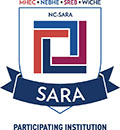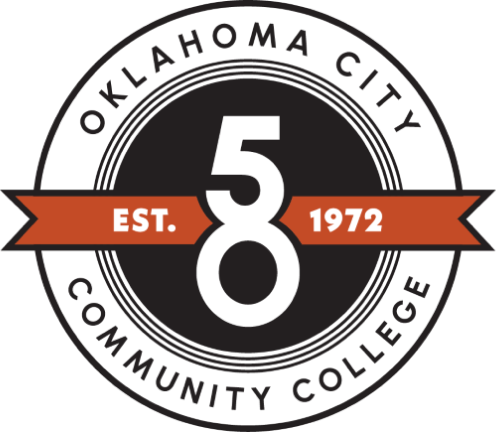Institutional Statements and Policies
Effective Fall 2024: To prevent being dropped from courses, please ensure one of the following is completed (contact your Student Success Advisor for additional information):
- Payment in Full: Pay your outstanding balance in full.
- Enroll into a Payment Plan: Enroll into either a 2, 4 or 8 installment payment plan (first installment is due August, September, or November depending upon the plan).
- Financial Aid: Ensure your student account has been awarded sufficient financial aid to cover your outstanding balance.
- Current Sponsorship: Confirm that current sponsorship is documented with the Bursar Office (i.e. Amazon, Tribal Award, TA Form).
Withdraw if Necessary: If you find yourself unable to commit to a course, consider withdrawing before the add/drop with refund deadline. It’s better to withdraw and enroll in the course when you can fully dedicate yourself to it. Failure to withdraw and being marked as Never Attend will result in a $100.00 Never Attend Fee per course.
Withdrawal Policy:
A student choosing to withdraw from a class must complete and submit an add/drop form which may be obtained from the advising office or withdraw online through his/her student account before the beginning of the fourth quarter of a semester (i.e., through the 12th week of a 16-week semester or the sixth week of an eight-week semester). Students who do not take the initiative to officially withdraw from a class may be give the grade of “F” and will be responsible for full payment of tuition and fees for the class. If you have questions regarding this notice, please consult your instructor.
Academic Integrity Policy:
Students of Oklahoma City Community College are required to meet the highest ethical standards in their academic pursuits. Faculty and staff share in this responsibility with students to maintain academic integrity. You may view this OCCC Policy No. 4016 on the OCCC website. Violations of academic integrity are viewed very seriously. Any form of academic dishonesty is subject to disciplinary action by the College.
Violation of Academic Integrity:
The absence of academic integrity is described as cheating, generally defined as the deception about one’s work to others. Such acts may include but are not limited to the following:
- Submitting another’s work as one’s own or allowing another to submit one’s work as though it were his/hers
- Several people completing an assignment and turning in multiple copies all represented either implicitly or explicitly as individual work
- Failing to contribute an equal share in group assignments or projects while claiming equal credit for the work;
- Using a textbook, notes, or technology tools during an examination without permission of the instructor
- Receiving or giving unauthorized help on assignment or examinations
- Stealing a problem solution or assessment answers from a professor, a student or other sources
- Tampering with experimental data to obtain desired results, or creating results for experiments not done;
- Creating results for observations or interviews that were not done
- Obtaining an unfair advantage by gaining or providing access to examination materials prior to the time authorized by the professor
- Tampering with or destroying the work of others
- Submitting substantial portions of the same academic work for credit or honors more than once without permission of the professor
- Lying about these or other academic matters
- Falsifying college records, forms or other documents
- Accessing computer systems or files without authorization
- Plagiarizing (Plagiarism is generally defined as the use in one’s work of specific words, phrases, ideas and/or works without giving proper credit) Specific examples of plagiarism may include but are not limited to the following:
- Copying and/or presenting the work of others as one’s own work, including sources from the Internet.
- Copying words, even if you cite the sources, unless appropriate quotation is noted.
- Copying words and then changing them a little, even if you give the source.
- Copying material from an Internet source without properly citing it.
Any person with a good faith suspicion that a violation of academic integrity has occurred shall report the suspected misconduct to the appropriate professor or immediate supervisor in whose area the suspected misconduct occurred.
The primary responsibility for investigating, making determinations and assigning academic sanctions for academic misconduct resides with the professor in whose course the suspected misconduct allegedly occurred. If a professor suspects that a violation of the Academic Integrity Procedure has occurred which will result in a failing final grade, the professor shall notify the appropriate Division Dean. The Division Dean will notify the Associate Vice President for Academic Affairs.
A professor who suspects that a violation of the Academic Integrity Policy has occurred shall notify the student in writing of the nature of the alleged violation and schedule a meeting with the student to offer the student the opportunity to discuss the allegation, review any supporting evidence, and offer any relevant information before a determination of violation is made.
For further information regarding this policy, the student is referred to the OCCC Student Handbook which is available online at http://catalog.occc.edu/content.php?catoid=2&navoid=62https://www.occc.edu/catalog/regulatory/academic-information/integrity/.
Accommodation Statement (Required in Syllabus):
Oklahoma City Community College complies with Section 504 of the Rehabilitation Act & the Americans with Disabilities Act. Students with disabilities who seek academic adjustments/accommodations must make their request by contacting the office of Student Accessibility and Support located on the first floor of the main building near SEM entry 3 or by calling 405-682-7520. All academic adjustments/ accommodations must be approved by Student Accessibility and Support.
If you have been approved by Student Accessibility and Support to receive academic adjustments/accommodations, you will receive an email from them with your approved accommodations attached. You should forward that email to me, so I will know what is authorized and then you must speak with me either in person, via email, or phone about your accommodations. This will allow me to be better informed on how to assist you with access during the semester. To respect your privacy, I will not approach you, but the academic adjustments/accommodations must be discussed to ensure ideal implementation for you. All information will remain confidential.
Pregnancy and Parenting Statement (Required in Syllabus):
Oklahoma City Community College does not discriminate against any student, or exclude any student from its education program or activity, including any class or extracurricular activity, on the basis of parenting, such student’s pregnancy, childbirth, false pregnancy, termination of pregnancy, or recovery therefrom. For the purpose of this policy, Caretaking is defined as a person providing for the needs of a child, and Parenting is defined as the raising of a child by the child’s parents in the reasonably immediate post-partum period. Please refer to OCCC Policy No. 1013 – Pregnancy and Parenting. The policy provides procedures for ensuring the protection and equal treatment of pregnant individuals, persons with pregnancy-related conditions, and new parents. Students are encouraged to work with their faculty members and OCCC’s support systems to devise a plan for how to best address the conditions as pregnancy progresses, anticipate the need for leaves, minimize the academic impact of their absence, and get back on track as efficiently and comfortably as possible. If you should need assistance you can contact the Equity and Compliance Coordinator, Dr. Carolyn Eastlin, at carolyn.i.eastlin@occc.edu or 405-682-7850. You can learn more about Reasonable Accommodation of Students Affected by Pregnancy, Childbirth, or Related Conditions and Authorization for Modified Academic Responsibilities Policy for Parenting Students at https://www.occc.edu/wpcontent/legacy/policy/pdf/1013.pdf
Title IX Coordinators (Required in Syllabus):
Title IX Oklahoma City Community College (OCCC) is committed to helping create a safe and open learning environment for all students. If you (or someone you know) have experienced any form of sexual misconduct, including sexual assault, dating or domestic violence, or stalking, know that help and support are available. The College strongly encourages all members of the community to take action, seek support, and report incidents of sexual misconduct to the Office of Institutional Equity. If you should need assistance, please contact the Title IX Coordinator, Dr. Carolyn Eastlin at report@occc.edu.
Copyright (Required in Syllabus):
Lectures and course materials in this course, including presentations, tests, exams, outlines, and similar materials, are protected by United States copyright law (Title 17, US Code). During this course, students are encouraged to take notes and download course materials for their own educational use. Students are prohibited from disseminating copyrighted course materials to any other person or entity, other than sharing them directly with another student enrolled in the course for purposes of studying, without prior written permission from the course instructor.
Micro-credential (if applicable):
This course is part of the requirements needed to earn a micro-credential in _____________________. A micro-credential is a short-term, postsecondary credential comprised of non-credit bearing activities or projects, and/or up to 9 hours of credit bearing courses that provide specific career-related critical skills, competencies, and knowledge that can be readily transferred to the workplace. In addition to this course, you will need to complete (insert course A if applicable) and (insert course B if applicable) to earn this micro-credential.
Assessment of Student Learning:
Oklahoma City Community College is committed to providing quality educational experiences to all students and to allow striving for continuous improvement in its programs and services. Student learning assessment is vital to the educational process and can be of significant value to you and to the students who follow you the student as well as contribute to their education success.
To ensure that adequate assessment information is available to allow OCCC to continuously improve programs and services, students you may be asked to participate in personal interviews; take program and/or general education assessments, which could be tests; give oral presentations, write assignments, take surveys, or engage in other activities. You may be asked to complete the assessments, tests, and other activities during a designated times, which may include class periods in a semester. These opportunities are your chance to help OCCC improve the courses, programs, and services which could affect you and will certainly impact students in the future.
Attendance Requirements:
OCCC expects students to attend class on a regular and punctual basis. If a student is absent from class, regardless of the cause, it is the responsibility of the student to communicate with the instructor to discuss work missed. The instructor will determine whether or not the student will be permitted to make up work and will decide on the time and nature of the make-up. If a student does not appear at a pre-arranged time for make-up work, he/she could forfeit the right to make up the work.
FERPA statement:
The educational rights and privacy of students of Oklahoma City Community College are governed by the Family Educational Rights and Privacy Act (FERPA) of 1974 as amended. The Act ensures students certain rights with regard to their education records. Students are ensured:
- the right to inspect their education records;
- the right to request the amendment of those records if they believe they are inaccurate, misleading, or otherwise in violation of the student’s privacy or other rights;
- the right to consent to the release of personally identifiable information, except to the extent that FERPA authorizes disclosure without consent, i.e., Directory Information;
- the right to file a complaint with the U.S. Department of Education concerning alleged failures by Oklahoma City Community College to comply with the requirements of FERPA;
- If you wish to review any academic record, please approach your faculty member to arrange a mutually agreeable meeting day, time and location;
- When distance is a barrier for a face to face meeting, an electronic form of communication for a meeting will be arranged;
- Students are encouraged to seek a review of their academic records while the course is in progress or shortly thereafter to ensure the record is maintained and available for review.
The educational rights and privacy procedure of Oklahoma City Community College is published in the OCCC College Catalog and is available upon request from the OCCC Registrar’s Office. For more information regarding your student rights under FERPA, visit http://www.occc.edu/records/FERPA.html.
MOODLE statement:
Moodle grades are provided for informational purposes only. In the event of a discrepancy between grades reported in Moodle and grades calculated according to the course syllabus, the latter of the two is the official grade for the class.
OCCC Emergency Procedures:
The health and safety of all our students, faculty, and staff are OCCC’s prime concern. The procedures outlined below are designed to deal with emergencies of various types. Students should always follow the lead of their instructors.
Fire:
First notification will come from the fire alarm horns, sirens, and strobes. The class should gather their belongings, exit the building using the nearest exit, and move to a parking lot. Do not use the elevators. No alarm should be treated as a false alarm. Horns, sirens, and strobes are only used for fire alarms.
Fire (Special Considerations):
If someone in your area is not physically capable of descending the stairwell, please ensure that they remain in the “area of safe refuge” located just inside each upper-level enclosed first stairwell. There are emergency phones located near each of these areas.
Medical Emergencies:
For all medical emergencies use the “Emergency” button located on each classroom or office phone. The classroom or office phone will display your current location, allowing for fast response to your location. You can also report a medical emergency to the Campus Police Department using any phone by dialing 682-7872. Dialing 911 directly may delay emergency responders. Campus Police and Security Officers are Basic Life Support capable and will also direct necessary Emergency Medical Services to your location. Remember to treat all bodily fluids as if they were contaminated and a potential biohazard.
Bomb Threat/Evacuation:
If you receive a bomb threat, document as much information as possible and push the “emergency” button on the phone. If the decision to evacuate is given, the phone will sound an alarm and display a text message. The class should gather their belongings, exit the building using the nearest exit, and move away from buildings to Faculty Circle by the most direct and safe route. Please turn off all wireless devices. (Cell phones, radios, laptops, and other portable devices.) Updated information will be communicated as soon as it is available. Do not return to any building until there is an “All Clear” message.
Severe Weather:
Tornado warnings with a potential impact to OCCC properties will be sent directly to the classroom phone. The phone will sound an alarm and display a text message. The class should gather their belongings, move away from exterior glass and exits, and move to safer areas. Designated for the building you are occupying. These “Safer Areas” are lower-level interior classrooms and hallways. Some buildings include stairwells as safer areas. You should familiarize yourself with the safer areas near your classroom(s). If the city/county sirens are sounding and OCCC is not in the warning area a message will be sent to the classroom phone advising this information.
Disturbance/Threats:
If someone is causing a disturbance in a classroom call the Campus Police Department immediately. Use the “emergency” button located on each classroom phone. Distance yourself from that person, do not place yourself in the person’s exit path and remove all potential weapons from the area.
Shelter in place:
If there is an armed person or active shooter on campus, the Campus Police will initiate a Shelter in Place alert. If in a classroom, office or other place where you can lock the door;
- Close and lock your hallway doors. Do not let anyone into the classroom.
- Silence cellphones, darken screens and remain calm & quiet
- Turn off the lights and shut any available blinds
- Use desks, tables and other objects to provide protection or barricade doorways
- Remain sheltered until an All Clear is issued by the Campus Police.
If in an open area;
- Get out of the building immediately using the nearest exit
- Do not look back or stop until you know you are away and safe
- Stay out and away from building until and All Clear is issued by the Campus Police.
App Policy:
https://www.openlms.net/privacy-and-cookies-policy/









